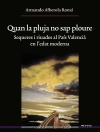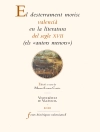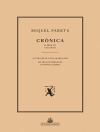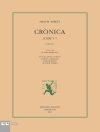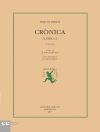Multiculturalism has long been linked to calls for tolerance of cultural diversity, but today many observers are subjecting the concept to close scrutiny. After the political upheavals of 1968, the commitment to multiculturalism was perceived as a liberal manifesto, but in the post-9/11 era, it is under attack for its relativizing, particularist, and essentializing implications. The essays in this collection offer a nuanced analysis of the multifaceted cultural experience of Central Europe under the late Habsburg monarchy and beyond. The authors examine how culturally coded social spaces can be described and understood historically without adopting categories formerly employed to justify the definition and separation of groups into nations, ethnicities, or homogeneous cultures. As we consider the issues of multiculturalism today, this volume offers new approaches to understanding multiculturalism in Central Europe freed of the effects of politically exploited concepts of social spaces.
Mục lục
List of Tables and Figures
Preface
Introduction: Understanding Multiculturalism and the Habsburg Central European Experience
Johannes Feichtinger and Gary B. Cohen
SECTION I: IDENTITY FORMATION IN MULTICULTURAL SOCIETIES
Chapter 1. Heterogeneities and Homogeneities. On Similarities and Diversities
Anil Bhatti
Chapter 2. Mestizaje and Hybrid Culture: Towards a Transnational Cultural Memory of Europe and the Development of Cultural Theories in Latin America
Michael Rössner
Chapter 3. The Limits of Nationalist Activism in Imperial Austria: Creating Frontiers in Daily Life
Pieter M. Judson
SECTION II: THE DYNAMICS OF MULTICULTURAL SOCIETIES, POLITICS, AND THE STATE
Chapter 4. Multiculturalism, Polish Style: Glimpses from the Interwar Period
Patrice M. Dabrowski
Chapter 5. Multiculturalism Against the State: Lessons from Istria
Pamela Ballinger
Chapter 6. Migration in Austria, An Overview: 1920s to 2000s
Michael John
SECTION III: IDENTITIES EXPRESSED, NEGOTIATED, AND CHALLENGED IN MULTICULTURAL SETTINGS
Chapter 7. The Slice of Desire: Intercultural Practices Versus National Loyalties in the Peripheral Multiethnic Society of Central Europe at the Beginning of the Twentieth Century
Oto Luthar
Chapter 8. On “Neighbors” and “Strangers”: The Literary Motif of “Central Europe” as Lieu de Mémoire
Andrei Corbea Hoisie
Chapter 9. Culture as a Space of Communication
Moritz Csáky
Notes on Contributors
Bibliography
Index
Giới thiệu về tác giả
Gary B. Cohen is Professor of Modern Central European history at the University of Minnesota, Twin Cities, where he has also served as director of the Center for Austrian Studies (2001-2010) and chair of the Department of History (2010-2013). He is the author of The Politics of Ethnic Survival: Germans in Prague, 1861-1914 (1981; second rev. ed., 2006) and Education and Middle-Class Society in Imperial Austria, 1848-1918 (1996).


